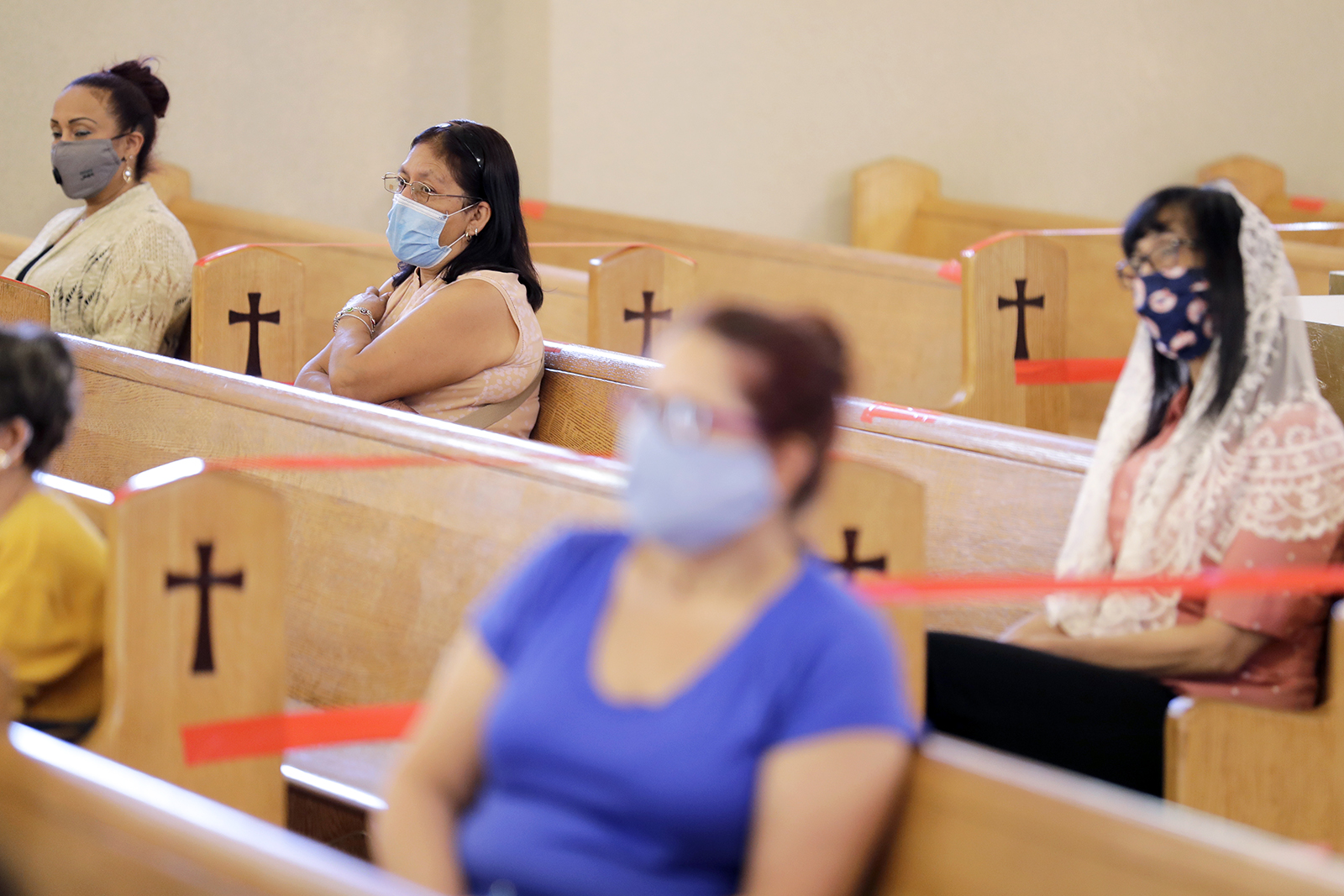(RNS) — While the number of U.S. Catholics is increasing, the total number of Catholic parishes nationwide declined 9% between 1970 and 2020, according to a new report by Georgetown University’s Center for Applied Research in the Apostolate.
In 10 of the 11 dioceses studied, those closures are disproportionately happening in Black and Latino neighborhoods and neighborhoods with higher poverty and unemployment.
The total number of American Catholics increased by 46% in the half-century before 2020, though the study’s researchers provided the context that the overall population increased 65% in those same years, meaning Catholics are a smaller proportion of the population.
The total number of priests, meanwhile, declined by 40%. The shortage of priests has played a significant role in the decisions to close parishes. Bishops announcing parish closures or consolidation repeatedly cite fewer and aging priests and low Mass attendance in decisions that typically receive pushback from their flocks.
Religious orders, like the Jesuits, have also announced plans to pull out of parish ministry because of few priests, ending longtime relationships with local parishes.
FutureChurch, a Catholic nonprofit that advocates for access to the Eucharist and reforms to the church, including married priests, commissioned the 759-page CARA report.
Parish size has grown by 60% since 1970, according to the report.
The CARA report notes that sacraments, including baptisms, Catholic marriages and Catholic funerals, have all declined. A deacon can also perform these sacraments, but there are fewer deacons than priests in the U.S.
Between 1970 and 2020, baptisms declined 57%, Catholic marriages declined 78%, and Catholic funerals declined 14%.
The report studied 11 dioceses: the Archdiocese of Baltimore, Archdiocese of Chicago, Archdiocese of Detroit, Archdiocese of Miami, Archdiocese of New Orleans, Archdiocese of New York, Archdiocese of Philadelphia, Archdiocese of St. Louis, Diocese of Bridgeport, Diocese of Cleveland and Diocese of Memphis.
The dioceses were selected to fit FutureChurch’s research needs and are not a representative sample. Several large dioceses, including the Archdiocese of Los Angeles, Archdiocese of Atlanta, Archdiocese of Galveston-Houston and Archdiocese of Seattle are not among the dioceses studied.
But in the dioceses studied, the report showed a tendency to close or merge parishes in neighborhoods that were poorer or had higher percentages of Black people or Latinos.

People attend Mass, in pews marked with tape for social distancing during the pandemic, at St. Agnes Church in Paterson, New Jersey, on June 14, 2020. (AP Photo/Seth Wenig)
While the average proportion of white residents was lower in neighborhoods where parishes closed and higher in neighborhoods where parishes were opened, “in all 11 dioceses, the average proportion of people below the poverty line, people unemployed, Blacks/African Americans, and Hispanics/Latinos was higher in those neighborhoods where parishes closed/were absorbed than in those neighborhoods were parishes opened/expanded,” the report concluded. (The sole exception was for Hispanic/Latino neighborhoods in the Archdiocese of Miami.)
The correlation between parish closures and the percentage of Black residents was statistically significant in nine dioceses, while it was only statistically significant for the percentage of Latino residents in two dioceses.
“Notably, it appears that poverty rate is a substantially bigger predictor of parish closings than racial composition,” the report’s authors wrote.
C. Vanessa White, associate professor of spirituality and ministry and director of the certificate in Black theology and ministry at Catholic Theological Union in Chicago, told RNS in an email that the parish closures she has seen in Chicago and those studied in the report directly contradict Catholic social teaching’s preferential option for the poor, vulnerable and marginalized.
White said that that she is experiencing her second round of parish closings, part of a substantial decrease in the number of Black Catholic parishes in the Chicago archdiocese.
Black Catholics in closed parishes experience “emotional and spiritual pain,” White said, and have expressed concern and anger “at what is perceived as a failure of Catholic leadership to pastorally and spiritually care for the needs of Black Catholics.”
White wrote, “The CARA report only confirms what many Black Catholics already believe — the presence and gift of Black Catholics is not welcomed in the Church.”

